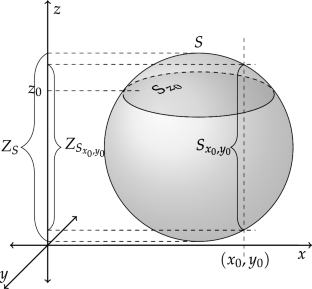准分离偏好
IF 0.9
4区 经济学
Q3 ECONOMICS
引用次数: 0
摘要
效用函数通常缺乏可加可分性,这给决策理论公理化带来了障碍。为了应对这一挑战,我们提供了拓扑积空间子集上形式为\(u(x,y,z)=f(x,z) + g(y,z)\)的准分离偏好效用函数的表示定理。然后,我们将这一结果推广到三维以上的空间,并将其应用于信念激发、不公平厌恶、跨时选择和等级效用。本文章由计算机程序翻译,如有差异,请以英文原文为准。

Quasi-separable preferences
Utility functions often lack additive separability, presenting an obstacle for decision theoretic axiomatizations. We address this challenge by providing a representation theorem for utility functions of quasi-separable preferences of the form \(u(x,y,z)=f(x,z) + g(y,z)\) on subsets of topological product spaces. These functions are additively separable only when holding z fixed but are cardinally comparable for different values of z. We then generalize the result to spaces with more than three dimensions and provide applications to belief elicitation, inequity aversion, intertemporal choice, and rank-dependent utility.
求助全文
通过发布文献求助,成功后即可免费获取论文全文。
去求助
来源期刊

Theory and Decision
Multiple-
CiteScore
1.60
自引率
0.00%
发文量
62
期刊介绍:
The field of decision has been investigated from many sides. However, research programs relevant to decision making in psychology, management science, economics, the theory of games, statistics, operations research, artificial intelligence, cognitive science and analytical philosophy have remained separate. Theory and Decision is devoted to all aspects of decision making belonging to such programs, but addresses also possible cross-fertilizations between these disciplines which would represent effective advances in knowledge. The purpose of the journal is to let the engineering of choice gradually emerge both for individual and for collective decision making. Formalized treatments will be favoured, to the extent that they provide new insights into the issues raised and an appropriate modeling of the situation considered. Due to its growing importance, expermentation in decision making as well as its links to the cognitive sciences will be granted special attention by Theory and Decision.
Of particular interest are: Preference and belief modeling,
Experimental decision making under risk or under uncertainty,
Decision analysis, multicriteria decision modeling,
Game theory, negotiation theory, collective decision making, social choice,
Rationality, cognitive processes and interactive decision making,
Methodology of the decision sciences. Applications to various problems in management and organization science, economics and finance, computer-supported decision schemes, will be welcome as long as they bear on sufficiently general cases. Analysis of actual decision making processes are also relevant topics for the journal, whether pertaining to individual, collective or negotiatory approaches; to private decisions or public policies; to operations or to strategic choices.
Officially cited as: Theory Decis
 求助内容:
求助内容: 应助结果提醒方式:
应助结果提醒方式:


